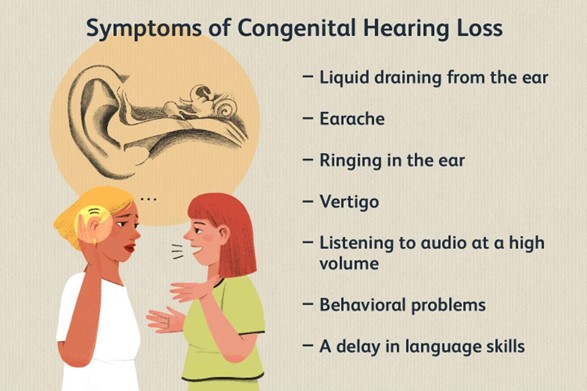A nurse is planning to provide discharge teaching for a client who has hearing loss. Which of the following actions should the nurse plan to take?
Dim the lights in the client's room.
Increase the rate of speech when talking with the client.
Answer client's questions using medical terminology.
Face the client while talking.
The Correct Answer is D
Choice A Reason: This is incorrect because dimming the lights in the client's room is not a helpful action for providing discharge teaching for a client who has hearing loss. Dimming the lights can reduce the visibility and clarity of the nurse's facial expressions, gestures, and lip movements, which can aid in communication.
Choice B Reason: This is incorrect because increasing the rate of speech when talking with the client is not an effective action for providing discharge teaching for a client who has hearing loss. Increasing the rate of speech can make it harder for the client to follow and understand what the nurse is saying.
Choice C Reason: This is incorrect because answering client's questions using medical terminology is not an appropriate action for providing discharge teaching for a client who has hearing loss. Medical terminology can be confusing and unfamiliar to the client, which can impair comprehension and learning.
Choice D Reason: This is the correct choice because facing the client while talking is an important action for providing discharge teaching for a client who has hearing loss. Facing the client can enhance eye contact, attention, and rapport. It can also allow the client to see the nurse's facial expressions, gestures, and lip movements, which can facilitate communication.

Nursing Test Bank
Naxlex Comprehensive Predictor Exams
Related Questions
Correct Answer is ["A","B","C","D"]
Explanation
Choice A Reason: A distended bladder is one of the most common triggers of autonomic dysreflexia, which is a life-threatening condition that occurs in clients with spinal cord injuries above T-6. The bladder becomes overfilled and stimulates the sympathetic nervous system, causing vasoconstriction and hypertension.
Choice B Reason: A severe headache is one of the most common symptoms of autonomic dysreflexia, caused by the increased blood pressure in the brain. The headache may be accompanied by blurred vision, sweating, flushing, or anxiety.
Choice C Reason: An elevated blood pressure is the hallmark sign of autonomic dysreflexia, which can reach dangerously high levels and cause stroke, seizure, or death. The blood pressure may rise up to 300/160 mmHg or higher.
Choice D Reason: Nasal congestion is another possible trigger of autonomic dysreflexia, as it stimulates the nasal mucosa and activates the sympathetic nervous system. Other potential triggers include bowel impaction, skin irritation, tight clothing, or temperature changes.
Correct Answer is A
Explanation
Choice A reason: This is the correct answer because right-sided homonymous hemianopsia means that the client has lost vision in the right half of both eyes, so placing food trays on the left side of the client will help them see and access their food better.
Choice B reason: This is incorrect because placing food trays on the right side of the client will make it harder for them to see and reach their food, as they have no vision on that side.
Choice C reason: This is incorrect because performing a focused visual exam is not an appropriate action for the nurse to take during meal time. The nurse should assess the client's vision before or after meals, but not interfere with their eating.
Choice D reason: This is incorrect because having the assistive personnel feed all meals to the client will decrease their independence and dignity, as well as their ability to practice using their unaffected side. The nurse should encourage and assist the client to feed themselves as much as possible, and only provide assistance when needed.
Whether you are a student looking to ace your exams or a practicing nurse seeking to enhance your expertise , our nursing education contents will empower you with the confidence and competence to make a difference in the lives of patients and become a respected leader in the healthcare field.
Visit Naxlex, invest in your future and unlock endless possibilities with our unparalleled nursing education contents today
Report Wrong Answer on the Current Question
Do you disagree with the answer? If yes, what is your expected answer? Explain.
Kindly be descriptive with the issue you are facing.
